- Home
- Tim LaHaye
Edge of Apocalypse Page 32
Edge of Apocalypse Read online
Page 32
"What?"
"Where we can find the ram."
SIXTY-THREE
Joshua and Pastor Campbell sprinted into Joshua's office, past the receptionist who blinked at them wide eyed.
In his office, Joshua accessed his private computer. He typed in the code:
ReturnToSenderHighSecurityUltimateProtocolsJoshuaMissileRDX143TSC .DoD.DefenseAdvancedResearchProjectsAgency.U.S.A.
In a few seconds the computer screen filled up with a long index listing the RTS weapons design documents.
Joshua keyed in two introductory RTS documents that included only executive summaries and then sent them to a segregated file for email delivery.
He pulled out a piece of paper with the encrypted email address that Atta Zimler had given him in the last phone call. Then he typed in the email address. Finally Joshua attached the documents to the email.
Then, with his fingers poised over the keyboard, taking a short breath, he looked over at Campbell. The pastor was staring at the ground. His lips were barely moving.
Keep praying pastor, Joshua said to himself.
Joshua clicked on the Send key.
A second later the screen read Sent.
"Done," Joshua said. Then with a wry look on his face he muttered, "I've just committed my first act of treason."
"No harm, no foul," Campbell shot back. "You said that those documents won't reveal anything essential."
"Right," Joshua said. "I don't think they will." Then he added with a desperate honesty, "I hope."
Then Joshua said to Campbell, "Step outside my office, please."
The pastor gave him a curious look but quickly nodded.
With a somber expression, Joshua said, "I don't want any witnesses to this."
Campbell left the room and closed the door behind him.
Joshua snapped open a metal security briefcase so he could start filling it. He knew exactly what the kidnapper wanted. He had all those documents. He had them in the document index on his screen at that very moment. It would take about ten minutes for him to print every one of them all out on the ultra-high-speed printer next to his desk. And then to put them in the briefcase and snap it shut. On the other hand, just a minute or two to download it to a zip drive.
"God, please help me," he said quietly. Then he added, "I hope I know what I'm doing."
Nine minutes later he came out of his office. Pastor Campbell was waiting for him.
"Let's go," Joshua said.
As they hurried down to the car, Joshua heard a beep on the Allfone. A text message from Abby. She was sending it from the business center in the hotel.
Handled the fed. marshals. Not happy. Did sweet talking & quick thinking.
"Good woman," Joshua said out loud.
The end of the text said, Can't stay away. Need to be there. Rocky & I will be outside the G C Station to be onsite. Will make sure not followed. Am praying. Love you. Oh God help us.
Joshua told the pastor that they needed to hustle back to the Grand Central Station. They needed to be there early. He couldn't risk being a minute late. Then they would wait for the next contact from the kidnapper.
Traffic was bad going back. Joshua glanced at his watch every thirty seconds or so.
"We are only going to have a fifteen-minute window or so," Joshua said.
"I'll drop you off at the main entrance, where the cabs drop off passengers," Campbell said. "Then I'll try to park close by. Here's my cell phone number if you need me. I'll stay put in my car until I get further instructions from you."
Campbell gave Joshua his card with his cell number written on it.
Everything was bumper-to-bumper. They seemed to be hitting all of the lights just wrong. One red light after another.
As they crawled along in the traffic, Joshua gripped the metal briefcase to his chest.
Is this going to work? Joshua kept wondering. Then he would push it out of his mind. It had to work. There were now no other options.
Finally Campbell pulled his car up to the main 42nd Street entrance of the terminal building, with its three huge arched windows and tall pillared colonnade.
Joshua was going to exit the car, but Campbell reached over and stopped him by grabbing his arm.
Campbell's eyes were closed. A car behind them beeped its horn. But Pastor Paul Campbell ignored it. He would deliver his benediction, his prayer, and nothing would stop him.
"Dear Lord, in Your Word, the Bible, this is what it says: 'The Lord spake to Joshua...saying...Have I not commanded thee? Be strong and of good courage; be not afraid, neither be thou dismayed: for the Lord thy God is with thee whithersoever thou goest.' Amen."
Joshua opened his eyes and nodded over to Campbell and then reached out and shook his hand.
"Thanks pastor. Keep praying. That I can save Cal. Somehow. Please. That's all I want. Just to save my son."
Outside the Grand Central Terminal, a white unmarked New York Police van with tinted glass was parked on Park Avenue, facing away from the columns of the imposing front colonnade of the train station. To help it blend into the street scene, a parking ticket had been stuck on the windshield underneath the wiper. Inside, two men were waiting, tense and focused, watching the front of the train station in the side-view mirrors. One of them was FBI Agent John Gallagher. The other was NYPD Detective Lou Cramer, veteran of the city's counterterrorism unit. The two men had known each other for years.
Cramer adjusted his earpiece, waiting for some word from his police spotter who had located himself on one of the upper floors of the Lincoln Building with a good view of the train terminal. But no word yet.
"Good to be hunkering down together again," Cramer said.
Gallagher simply answered with "yeah" and a visible nod. But they both knew what the other was thinking. The tensions between the FBI and the NYPD had been legend. But blown out of proportion. Then it came to a head all over again years before, way back in 2009, with the terrorism arrest of Najibullah Zazi. The charges said he planned on blowing up the New York subways. The press had another field day with that one, about the supposed feud between the departments. The truth was that Gallagher from the feds and Cramer for the NYPD had quietly worked that case together, in the background, out of the lime-light. They had to laugh at the headlines. That was the last time they were partners on a joint terror case.
Until now.
Then Detective Cramer got a message in his earpiece. He nodded and listened. Then he signed off and turned to Gallagher. "Joshua Jordan just stepped out of a car in front of the terminal. He's carrying a briefcase."
Joshua was on the walkway outside the train station. He glanced at his watch.
He cast a long look around the surrounding area and noticed Abigail and Rocky standing next to a newspaper vendor's booth on the sidewalk about a hundred feet away.
Joshua gave a quick, restrained wave with two fingers from his waist.
Abigail clasped her hands over her heart and made a movement toward him.
He could read her face, her body posture even from that distance. Fear, longing, hope. All of it wrapped up in that single moment. That one furtive glance between husband and wife. Standing apart, but bound together by the same unthinkable crisis.
But Joshua immediately shook his head no as Abigail instinctively took a half step toward him. At the same time Rocky simultaneously reached out and gently took hold of her arm.
Joshua gave a short nod to them both and started toward the main entrance doors.
Inside the police van, Detective Cramer turned to a male and a female cop who were in the back of the van. Both were dressed as tourists. "Okay, you're on," he said.
The two cops in street clothes scampered out and started strolling casually but quickly toward Joshua's position near the entrance doors. The man was pretending to read a New York City tour guide map as he and his female partner approached a passerby, but they were shrugged off. Then they walked up to Joshua.
"Say," the man called out to Joshua
, pointing to the map, "can you tell me where the Empire State Building is from here?"
Joshua was about to shoo them off, but then the man slipped a small plastic electronic earpiece into Joshua's hand. He could tell it was a sophisticated omni-directional earpiece that could send two-way communications.
"Put this in your right ear, Mr. Jordan," he whispered. "We're police; we're here to help."
Then the man and woman smiled, laughed, and thanked Joshua loudly for the directions and walked away.
Joshua discreetly inserted the small earpiece deeply in his ear.
He waited. Nothing.
Then a voice.
"Mr. Jordan, this is Lou Cramer, detective with the NYPD. We're going to be assisting you today. Let's work together to rescue your son."
"How'd you know..."
"Don't worry about that now, sir."
"What do I do?"
"Go through with the meeting. We'll be watching you."
"What if he picks up this conversation?"
"No chance. This is a special frequency. If he tries to scan us electronically all he'll get is white noise."
"You should know that I'm still waiting for his next contact with me."
"Fine. Good. You need to speak out loud, audibly if you get any leads or tips on where your son might be. We'll pick it up from here."
"This guy is smart. I don't think he's going to be telling me where Cal is."
"No, that's true. At least not directly."
"Then what?"
Inside the van, Gallagher scratched a note for the detective to read. After looking at it Detective Cramer nodded and then said to Joshua, "We've got some other resources available. Ways of trying to help you. And Cal. Just relax, and go with the flow. We're going to be with you every step of the way, sir."
Then the detective turned the microphone off at his end.
Gallagher asked, "You've got sharpshooters?"
"Right. All of our crisis team guys. And the bomb squad just in case, standing by. Don't worry, John, we've got this covered."
"You don't know his guy. Atta Zimler's the best. He can smell a trap. Almost impossible to catch. I ought to know. I've been tracking him for years."
"Even the best bad guys have a bad day. Let's hope this'll be his."
"So Lou," Gallagher added, "as far as my involvement in this deal is concerned..."
"Yeah, I know the drill. We called you. You didn't call us. Got it. You're here only at our request. And only as a consultant."
"Exactly," Gallagher said. "As you can see, I'm not carrying...," indicating he hadn't brought his favorite 357 Smith & Wesson with him.
"I understand. Now relax, John."
But Gallagher couldn't. His chest and esophagus had the feeling of being crushed in a burning hot industrial press.
Gallagher pulled a small bottle of milk out of his suit-coat pocket, screwed off the cap, and took a gulp.
"Ulcer?" the detective said.
"What are you, my doctor now, Lou?"
Then Gallagher glanced down at his watch. He muttered, "Come on, you freak, we're waiting for you. Everything's ready. Come on in. Into the trap. Do it...do it..."
SIXTY-FOUR
A tidal flood of human traffic was flowing in and out of Grand Central Station, oblivious to the catastrophe that was waiting within.
Inside the main concourse, on a bench in a corner, a man who appeared to be an Amtrak officer, with a well-trimmed beard and tinted glasses, was working on a small laptop. Atta Zimler took pride in his disguises. This would be one he'd have to use for this particular assignment.
The screen on his laptop had side-view protection. Only he could read it. On the screen was a diagram of the interior of the terminal. Along the sidebar were several boxes. One said "E-Com Scan." He touched his index finger to the box and hit a keystroke. The screen revealed two blinking dots. One of them was less than seventy-five feet from his position. He touched his finger to the screen where the dot was blinking.
Then he inserted the earpiece in his ear. And started listening. A man was talking about an electrical wiring problem.
Zimler glanced over toward the position on the diagram where his computer screen had located the source of the electronic communication. Through the crowd of travelers he spotted a man dressed in a green maintenance uniform, crouching by an electric outlet with a toolbox next to him.
Then Zimler touched the other blinking dot; this indicated a location in another part of the building, much farther away. His wireless transmission scanner was picking up a police radio. He listened in. An officer was making a routine call-in of his position as he strolled through the concourse.
As an extra precaution Zimler clicked on the second box on his screen that read "PublicVideoFeed." In the lower corner of the screen a small box appeared. It was blank. He tapped the second blinking dot with his finger, and the box lit up with a grainy black-and-white picture that was capturing the feed from a terminal surveillance camera in that part of the terminal.
Zimler watched as the officer, on routine patrol, bent his head slightly to the side toward the little walkie-talkie on his collar, signing-off. Zimler had his eyes glued on the image in the corner of his computer screen as he saw the officer then stroll slowly out of the building to finish his shift for the day. Then he minimized the image and went back to the main screen with the diagram of the terminal.
Putting his finger to the part of the diagram that showed a small storage room, he selected it by tapping it with his finger. The image box on this screen was empty. Then he went to a third box on the side of his screen. This one read "PrivateVideoFeed." He clicked it on. Then he tapped the storage-room location again.
Now the image lit up in the little video box in the lower corner. Zimler hit the Zoom function so he could get a closer look. Then he tapped it again for an even closer image. Now he was able to read the yellow LCD screen connected to the bomb he had carefully constructed. He had fitted it with high-grade plastic explosives and armed it with the blasting caps he had purchased at the little mining supply shop in West Virginia. There was a small digital clock in the corner of the bomb's LCD screen. It was blinking with the words "Set--Ready."
Zimler took out a digital detonator control that looked like a tiny television remote. He was ready to press the Clock function. Then he looked back at the video image on his laptop computer screen that showed the inside of the storage room, with the close-up of the LCD screen on the bomb.
He pressed down on the Clock button. The LCD screen clock on the bomb now lit up and started counting down: 30:00...29:59...29:58...29:57...Zimler put the remote detonator in his pocket and pulled out two Allfones.
Everything was in place. Now all he had to do was locate his delivery man.
Outside the terminal by the main entrance doors Joshua was starting to worry. The time had already come and gone when he was to receive some contact from the kidnapper. He checked his own Allfone to make sure it was working and the battery was good. It was.
Then he also checked the other Allfone, the one belonging to Rocky. There were no messages. His brain was racing. Come on. Come On. Where are you? Let's go.
That was when he suddenly became aware that someone was approaching him.
The guy had a long, dirty coat, a scraggly beard, and he was wearing a bandana on his head. He looked like a homeless guy.
Joshua took him to be a panhandler looking for a couple of bucks. He reached in his pocket to pull some money out to send the guy on his way. But when the homeless man was only a few feet away, Joshua noticed that he already had money in his hand. He came right up to Joshua and stopped. Looking at his hand, Joshua thought to himself, The guy's holding a hundred dollar bill.
Then the homeless man reached his other hand out to Joshua. In his hand was a small paper bag.
Joshua took it. He could feel something inside the bag, something hard and square. For a moment Joshua's brain was telling him not to open it. It could be anything. The whol
e scene was painfully bizarre.
But just as quickly he knew that he had to play along. The detective had told him to "go with the flow." He didn't have any choice. Joshua Jordan, the man who was accustomed to calling the shots, making the key decisions, controlling the scenario, now knew this was all bigger than him and was ultimately out of his control.
At least for right now.
Joshua reached into the bag and pulled something out. It was an Allfone.
At that point the homeless guy stuffed the hundred dollar bill in his pocket, gave a quick worried look back toward the terminal, as if someone was watching him, and then hurried aimlessly down the sidewalk.
Now Joshua read the message on the screen of the Allfone.
It read: "Click on Video."
Joshua took his index finger and pressed it down on the video key of the Allfone.
The little screen on the handheld lit up with an image. And when Joshua saw it the ground seemed to sway underneath his feet. Like the beginning tremor of an earthquake. He told himself to focus, but his heart was breaking.
Steady, Josh. Steady.
What was he seeing? Was he really watching this?
It was a live video image of Cal. He was tied up. His mouth was covered with tape. There was something around his neck. Like a bulky electronic collar of some kind. There was a series of small packs, each about the size of a deck of cards linked together in the collar. Joshua had seen this before. His military experience told him what it was.
Dear God...
The collar contained several blocks of plastic explosives, maybe Semtex.
Then the image automatically zoomed in. Joshua was able to see now the digital clock attached to the bomb around his son's neck. It was ticking. It read: 25:14...25:13...25:12...
The image disappeared and a message flashed on the screen of the Allfone in Joshua's hand. It read:
Want to save him? Bring the RTS package to the grand staircase on the west side of the terminal. Come alone or you will see your son explode.

 Glorious Appearing: The End of Days
Glorious Appearing: The End of Days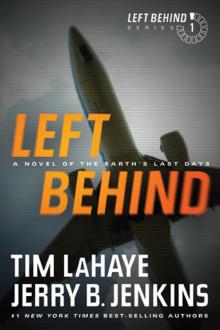 Left Behind: A Novel of the Earth's Last Days
Left Behind: A Novel of the Earth's Last Days Kingdom Come: The Final Victory
Kingdom Come: The Final Victory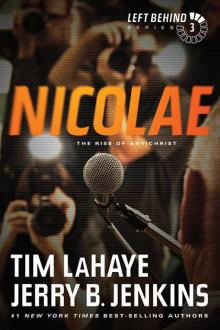 Nicolae: The Rise of Antichrist
Nicolae: The Rise of Antichrist Desecration: Antichrist Takes the Throne
Desecration: Antichrist Takes the Throne Mark's Story: The Gospel According to Peter
Mark's Story: The Gospel According to Peter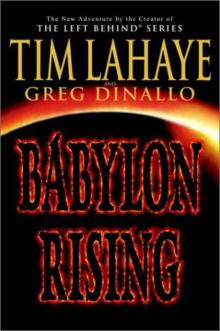 Babylon Rising
Babylon Rising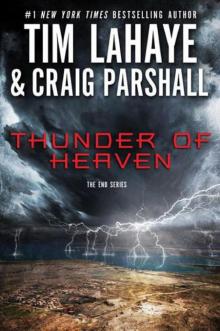 Thunder of Heaven: A Joshua Jordan Novel
Thunder of Heaven: A Joshua Jordan Novel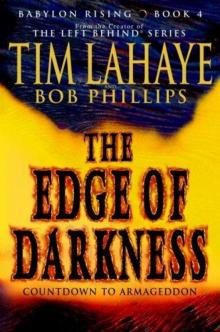 The Edge of Darkness
The Edge of Darkness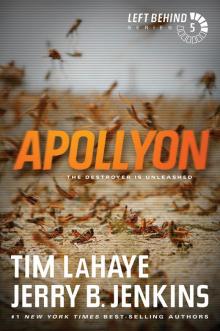 Apollyon: The Destroyer Is Unleashed
Apollyon: The Destroyer Is Unleashed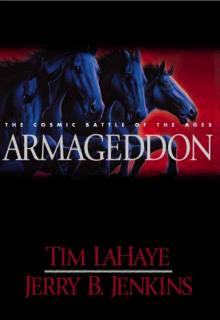 Armageddon: The Cosmic Battle of the Ages
Armageddon: The Cosmic Battle of the Ages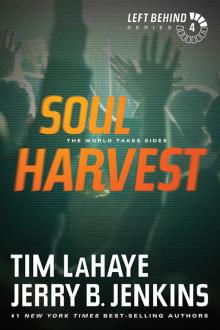 Soul Harvest: The World Takes Sides
Soul Harvest: The World Takes Sides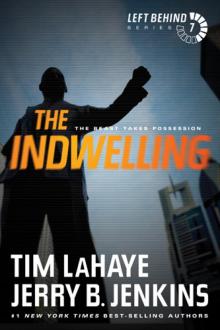 The Indwelling: The Beast Takes Possession
The Indwelling: The Beast Takes Possession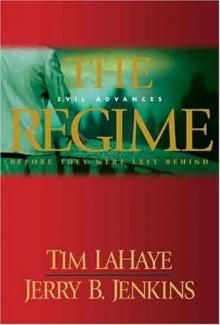 The Regime: Evil Advances
The Regime: Evil Advances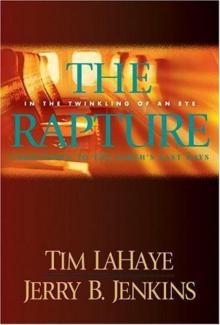 The Rapture: In the Twinkling of an Eye / Countdown to the Earth's Last Days
The Rapture: In the Twinkling of an Eye / Countdown to the Earth's Last Days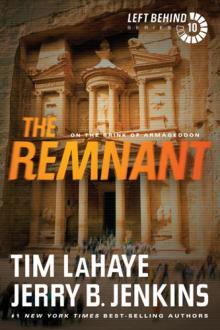 The Remnant: On the Brink of Armageddon
The Remnant: On the Brink of Armageddon John's Story: The Last Eyewitness
John's Story: The Last Eyewitness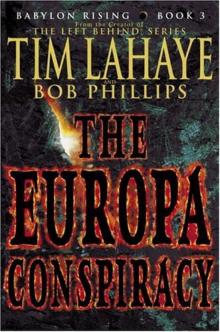 The Europa Conspiracy
The Europa Conspiracy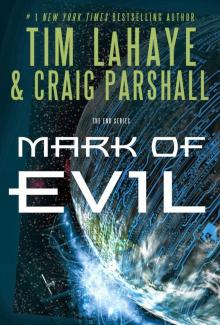 Mark of Evil
Mark of Evil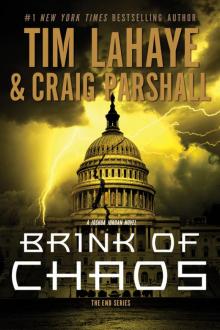 Brink of Chaos
Brink of Chaos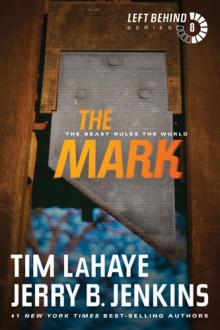 The Mark: The Beast Rules the World
The Mark: The Beast Rules the World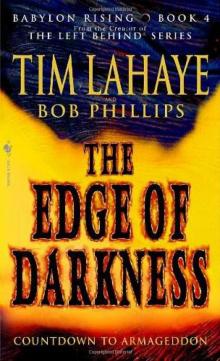 04 The Edge of Darkness
04 The Edge of Darkness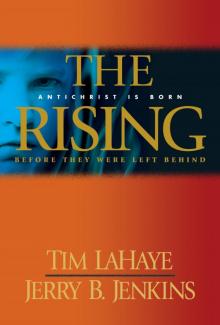 The Rising: Antichrist is Born / Before They Were Left Behind
The Rising: Antichrist is Born / Before They Were Left Behind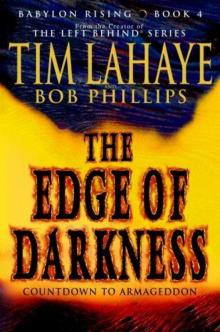 Babylon Rising: The Edge of Darkness
Babylon Rising: The Edge of Darkness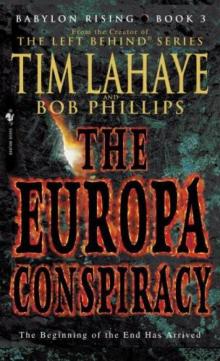 03 The Europa Conspiracy
03 The Europa Conspiracy Desecration
Desecration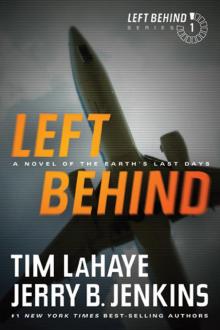 Left Behind
Left Behind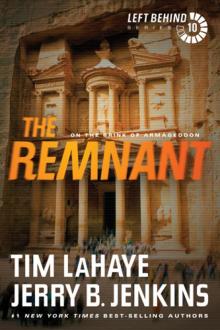 The Remnant
The Remnant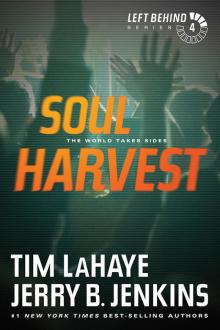 Soul Harvest
Soul Harvest Left Behind Book 13: Kingdom Come The Final Victory
Left Behind Book 13: Kingdom Come The Final Victory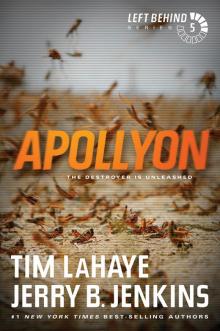 Apollyon
Apollyon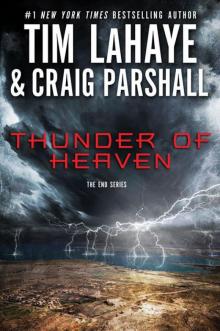 02 Thunder of Heaven: A Joshua Jordan Novel
02 Thunder of Heaven: A Joshua Jordan Novel Glorious Appearing
Glorious Appearing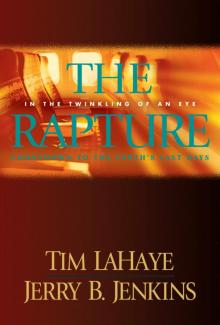 The Rapture: Evil Advances / Before They Were Left Behind
The Rapture: Evil Advances / Before They Were Left Behind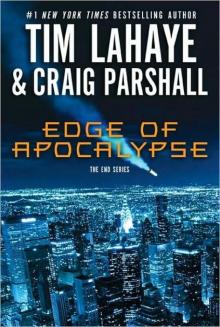 Edge of Apocalypse
Edge of Apocalypse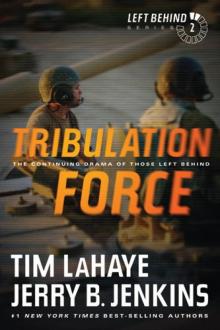 Tribulation Force
Tribulation Force The Left Behind Collection: All 12 Books
The Left Behind Collection: All 12 Books Black Friday
Black Friday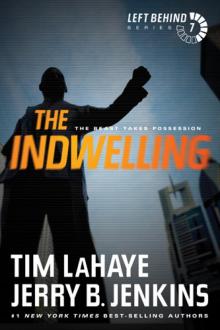 The Indwelling
The Indwelling The Left Behind Collection
The Left Behind Collection